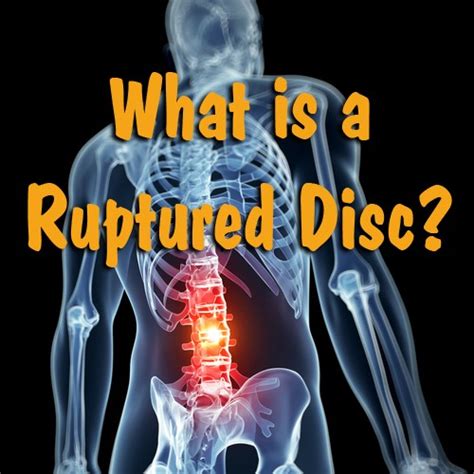How to Fix a Ruptured Disc: A Comprehensive Guide
A ruptured disc, also known as a herniated disc, is a painful condition affecting the spinal column. This comprehensive guide explores various treatment options, helping you understand how to manage and potentially fix your ruptured disc. Remember, this information is for educational purposes and should not replace professional medical advice. Always consult your doctor before starting any treatment plan.
Understanding Ruptured Discs
Before diving into treatment, it's crucial to understand the problem. Intervertebral discs act as cushions between your vertebrae. A ruptured disc occurs when the outer layer of the disc tears, allowing the soft inner material to bulge or leak out, potentially pressing on nearby nerves. This pressure can cause significant pain, numbness, weakness, and tingling in the affected area.
Symptoms of a Ruptured Disc
Symptoms vary depending on the location of the rupture. Common symptoms include:
- Back pain: Often sharp and intense, radiating to other areas of the body.
- Sciatica: Pain radiating down the leg(s), often accompanied by numbness and tingling.
- Neck pain: If the rupture occurs in the neck, pain can radiate to the arms and shoulders.
- Muscle weakness: Difficulty lifting or performing everyday tasks.
- Numbness and tingling: Sensations of pins and needles in the affected area.
Non-Surgical Treatment Options for a Ruptured Disc
Most ruptured discs can be effectively managed without surgery. Conservative treatments aim to reduce pain, inflammation, and pressure on the nerves. These include:
1. Rest and Ice/Heat Therapy:
Initially, rest is crucial. Avoid strenuous activities that exacerbate pain. Apply ice packs for the first 24-48 hours to reduce swelling, followed by heat therapy to relax muscles.
2. Medications:
Your doctor might prescribe:
- Over-the-counter pain relievers: Ibuprofen or acetaminophen can help manage pain and inflammation.
- Prescription pain medications: Stronger pain relievers or muscle relaxants may be necessary for severe pain.
- Anti-inflammatory drugs: These help reduce swelling and inflammation.
3. Physical Therapy:
Physical therapy is a cornerstone of ruptured disc treatment. A physical therapist can teach you exercises to strengthen your core muscles, improve posture, and increase flexibility. This helps stabilize your spine and reduce strain on the affected disc.
4. Epidural Steroid Injections:
In some cases, your doctor might recommend epidural steroid injections to reduce inflammation around the nerve roots. This can provide temporary pain relief.
Surgical Treatment Options for a Ruptured Disc
Surgery is usually considered only if conservative treatments fail to provide adequate relief or if there are neurological complications like significant weakness or bowel/bladder dysfunction. Surgical options include:
1. Discectomy:
This involves removing the damaged portion of the disc, relieving pressure on the nerve.
2. Spinal Fusion:
This procedure involves joining two or more vertebrae to stabilize the spine.
3. Artificial Disc Replacement:
This newer procedure replaces the damaged disc with an artificial one, preserving spinal motion.
Preventing Future Ruptured Discs
Preventing future occurrences is crucial. Consider these steps:
- Maintain a healthy weight: Excess weight puts extra strain on your spine.
- Exercise regularly: Focus on core strengthening exercises to support your back.
- Practice good posture: Maintain proper posture while sitting, standing, and lifting.
- Lift objects correctly: Bend your knees and lift with your legs, not your back.
- Quit smoking: Smoking reduces blood flow to the discs, hindering their ability to heal.
Disclaimer: This information is intended for educational purposes only and should not be considered medical advice. Always consult with a healthcare professional for diagnosis and treatment of any medical condition. They can accurately assess your specific situation and recommend the best course of action for your individual needs.
